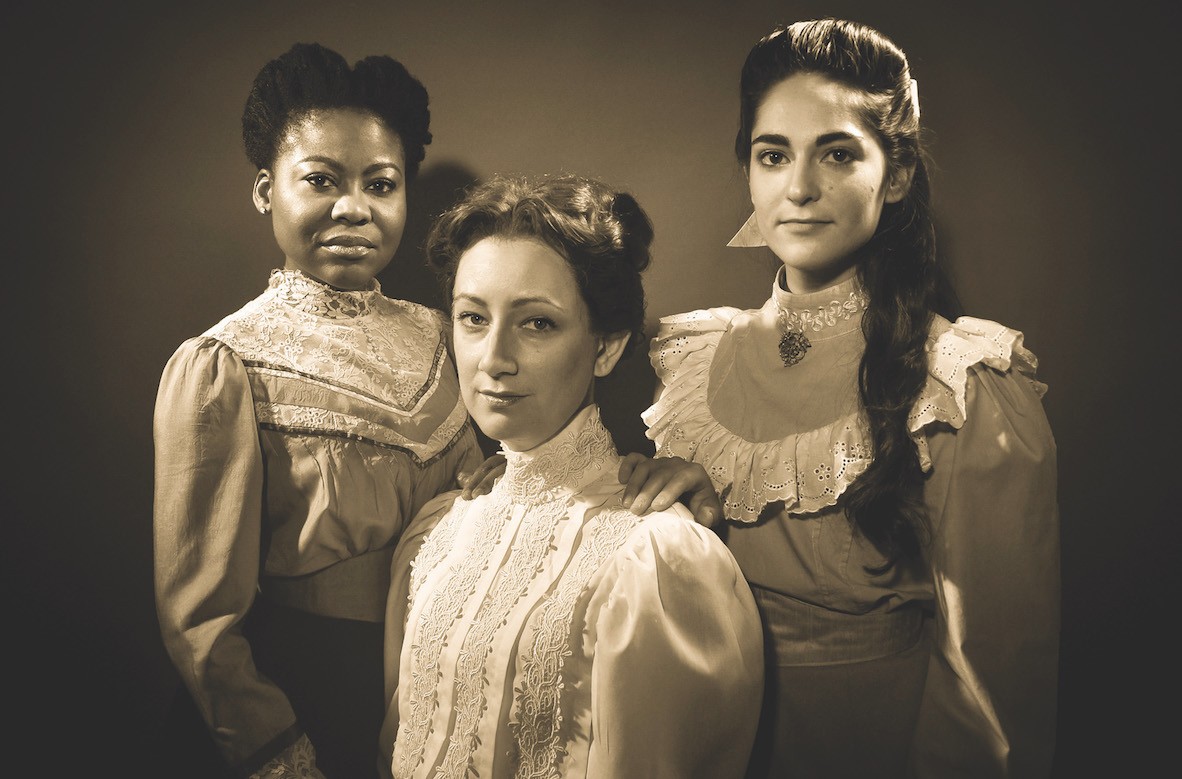One of the modern approaches to drama, whether it’s a Greek tragedy or a 19th century Italian opera, is to shift the timeframe from the period in which the piece was written to some contemporary moment.
Updating a piece is one of the ways to make the story more understandable to today’s audiences, both theater and opera directors often say.
With that in mind, one would think updating a play about three sisters and their brother stuck in the boondocks because that’s where their father worked, but longing to return to the big city where they grew up, would be a no-brainer for a change in both time and place. It’s a universal theme.
No play would seem a more appropriate candidate for picking up and putting down elsewhere than Russian playwright Anton Chekhov’s 1900 drama “Three Sisters.”
No so, says London-based director Michael Fry. “It has to be this time in Russia,” Fry said during a conversation about the play last week. “There’s been a 4-year uprising that brought their military officer father to the town 700 miles from Moscow.
“He couldn’t leave his children behind at home. For one thing, they were the age they might get into trouble. For another, he didn’t know what was going to happen in Moscow during the time he would be gone.”
Things were not all well in Russian life in general. Political and social rumbling were underway and would erupt into the Russian Revolution.
The revolution began in 1905, just four years after Chekhov wrote his play and 14 years after the time period in which he set it. He probably had a good sense of what was to come.
This production of “Three Sisters” is Fry’s first venture directing Chekhov.
“I’ve always heard that Chekhov was one of the 10 greatest playwrights of all time,” Fry said. “After working with this production, I’m convinced Chekhov is one of the three greatest playwrights: Shakespeare, Ibsen and Chekhov.”
“‘Three Sisters’ may well be the best play ever written,” he said. “It’s beautifully crafted. There are back stories, motivations of the characters, complex sub-sciences and character journeys. We are left with something so real you feel you know these people.”
In some theater, in most movies and often in literature, the observer, or reader, stays at arm’s length, watching what happens.
“That doesn’t happen in this play,” Fry said. “You have to become the characters to really understand them. There are so many small details in staging this play that are very important. I think they will resonate with the audience.
“The emotions and ordeals of the 12 principal characters are shown through all their laughter, tears and anxieties. The play’s themes of love, desire, unrequited affection and death are just as relevant and pertinent to today’s audiences, who quickly become absorbed by the experiences of each discrete character.”
Fry has clear opinions about America and Americans. “I’ve been coming to America (to direct) for 15 years,” he said. “No matter when I’ve worked here, it’s always been a country of positivity and upbeat attitudes. The American people have had the attitude that anything was possible.
“I don’t see that anymore. It’s a downbeat place. The powerful sense of American can-do and anything is possible is gone. I knew when Brexit happened in the UK, it would affect the U.S. too. The result was the election of Donald Trump. We all seem to be in this general, anti-immigrant atmosphere together.”
“Three Sisters” opens at the University of Tennessee’s Ula Love Doughty Carousel Theatre Friday, Sept. 29, and runs through Sunday, Oct. 15, with performance at 7:30. The open-caption performance will be the 2 p.m. Sunday, Oct. 15, matinee.
For tickets, call the Clarence Brown Theatre box office at 865-974-5161, Knoxville Tickets at 865-656-4444, or order online around the clock at www.charencebrowntheatre.com. UT faculty and staff, senior citizens, military personnel, children and students receive price discounts.

